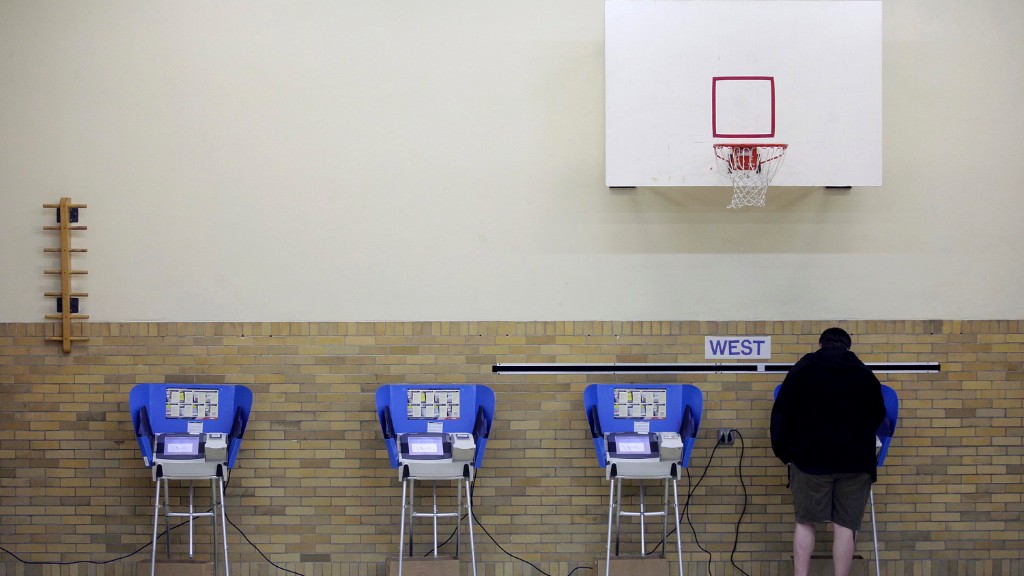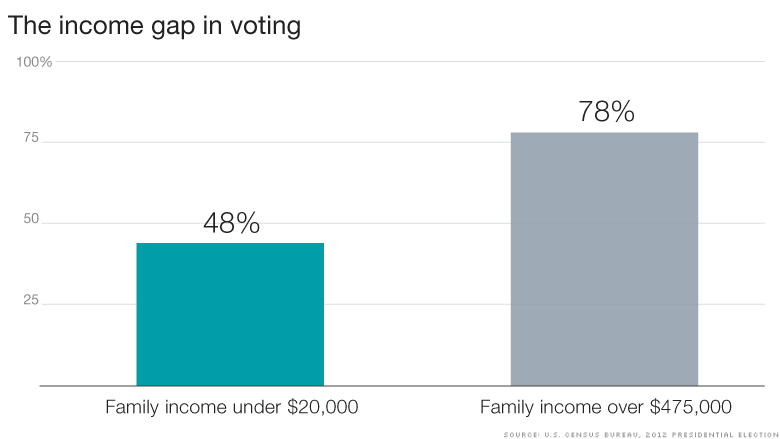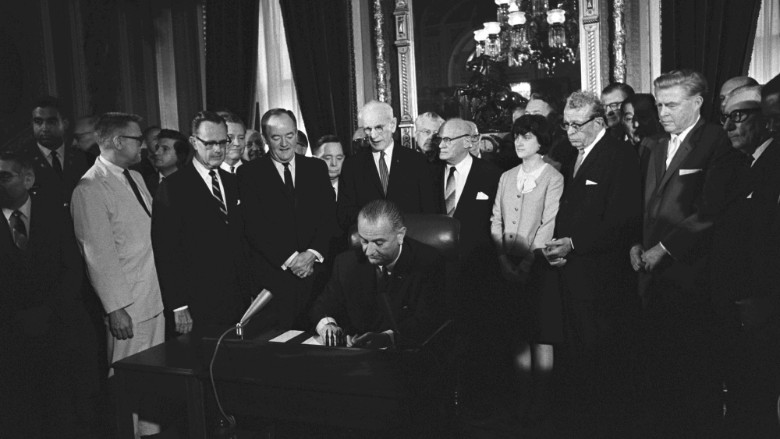
It's been 50 years since Lyndon B. Johnson signed the Voting Rights Act -- the law prohibiting racial discrimination against voters.
But there is still a voting problem in the United States: Many people who live in poverty just aren't going to the polls.
Less than half of those who made under $20,000 voted in 2012. Meanwhile, voter participation for people who live in households with incomes of more than $75,000 was much higher at 77%.
It's clear that the system is leaving many people out -- especially the poor. So what is behind such dismal turnout among low-income voters? Here are just a few explanations:

Voter ID laws and registering to vote
Perhaps the biggest change to our electoral process in the last few years is the proliferation of Voter ID laws, which many states put in place to prevent fraud. Since 2008, 17 states have enacted laws requiring citizens to prove who they are at the polls, according to the National Conference of State Legislators.
But getting an ID can be costly when you're just getting by. A Government Accountability Office report found that it costs between $5 and $58.50 to get an ID in states that require it.
These added barriers to casting a vote impact the poor, elderly, young adults and minorities the most.
Most states do have an option to get a free ID for those who can't afford it, but the documentation required (like a passport or birth certificate) often costs money, too.
And many argue that the in-person voter fraud that these ID laws are trying to prevent is so rare that it's not worth the cost -- either economically or from a civil rights perspective.
A federal court ruled Wednesday that a Texas voter ID law, one of the strictest in the country, had a discriminatory effect against Hispanic and black voters and violated the Voting Rights Act.

Getting low-income individuals to register to vote in the first place has also proven to be a challenge.
In 2012, there were 14.3 million U.S. citizens with incomes under $20,000 a year who were over the age of 18, and only 8.9 million were registered to vote.
Part of the reason might be because individuals living below the poverty line are more likely to move. That often adds an extra step of paperwork to register, before even getting to the polls.
An MIT study estimated that 1.2 million votes were lost in 2012 due to registration problems -- these people went to the polls but didn't vote because there was some issue with their registration. While that's less than 1% of total voters, it's still a lot of people.
Missing work
Elections are held on a work day, when time often equals money -- especially if you get paid by the hour. And having a car or paying extra for public transportation to get to the polls can just add to that expense.
Being 'too busy' or encountering 'transportation problems' were the reasons why 28% of people making less than $20,000 did not vote in 2012.
Many other countries including Australia, Brazil, France, Germany, and Italy, hold elections on a weekend. And most of them have higher voter turnouts than the U.S.
But instead the U.S. sticks to Tuesdays -- and the reason for our Tuesday voting is antiquated, dating back to 1845.
Long lines
Not only do low-income people potentially lose pay when they vote, but some have to wait longer too. The Presidential Commission on Election Administration found that 10 million people waited in line for more than 30 minutes to vote in 2012.
And a report from the Brennan Center for Justice that looked at three states with some of the longest lines in the country -- Maryland, South Carolina and Florida -- found that voters in precincts with more minorities had longer wait times and less resources at polling locations.
Education and political engagement
While there are plenty of structural issues that keep the poor from voting, research shows there's also a sharp divide among voters based on the level of education they attain. Less than 40% of those without a high school diploma reported voting in 2012. That's compared with a 77% turnout among those with bachelor's degree or higher.
And a Pew Research Center report this year stated "financial security is strongly correlated with nearly every measure of political engagement."
While the report makes clear that a lack of financial security is not necessarily the primary cause for disengagement, it does suggest it has an effect. Essentially, when you're concerned about putting food on the table, it's hard to think about politics.


